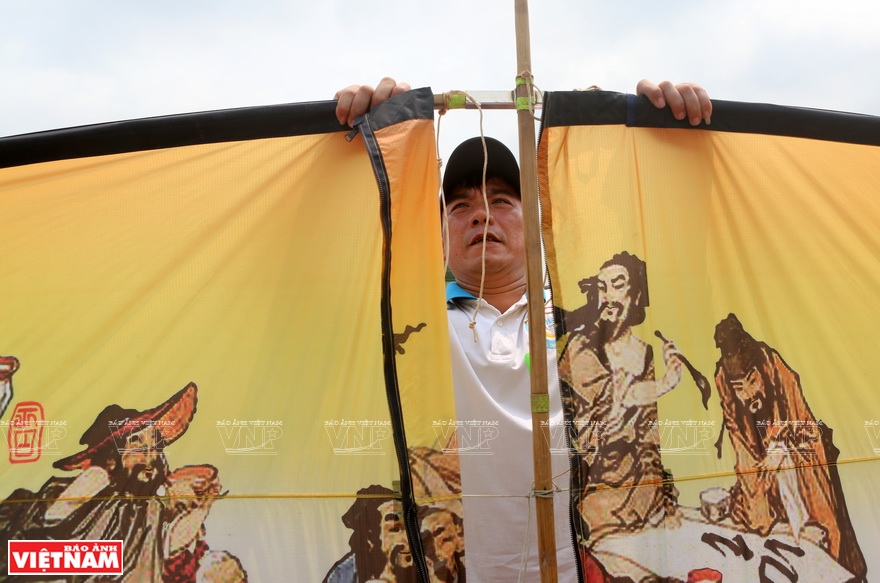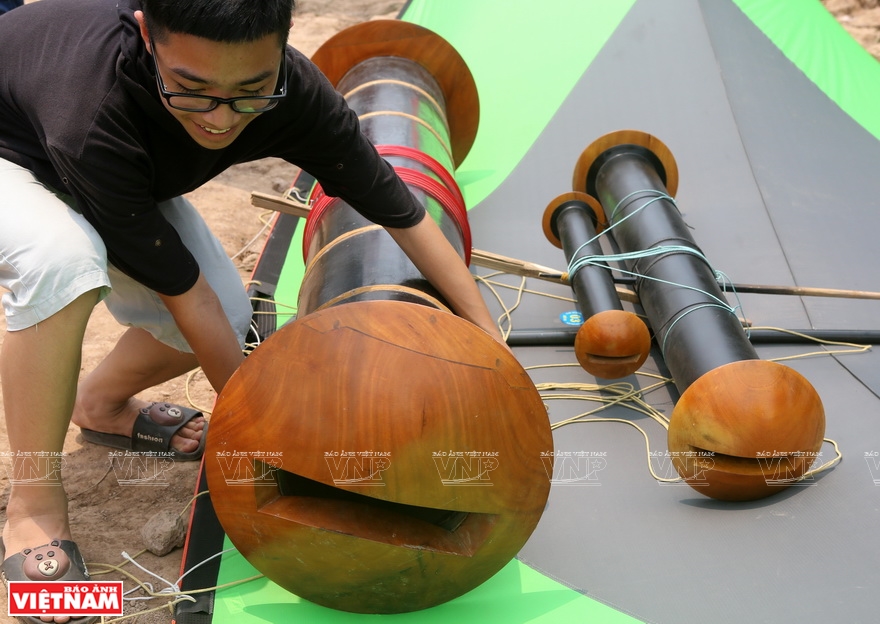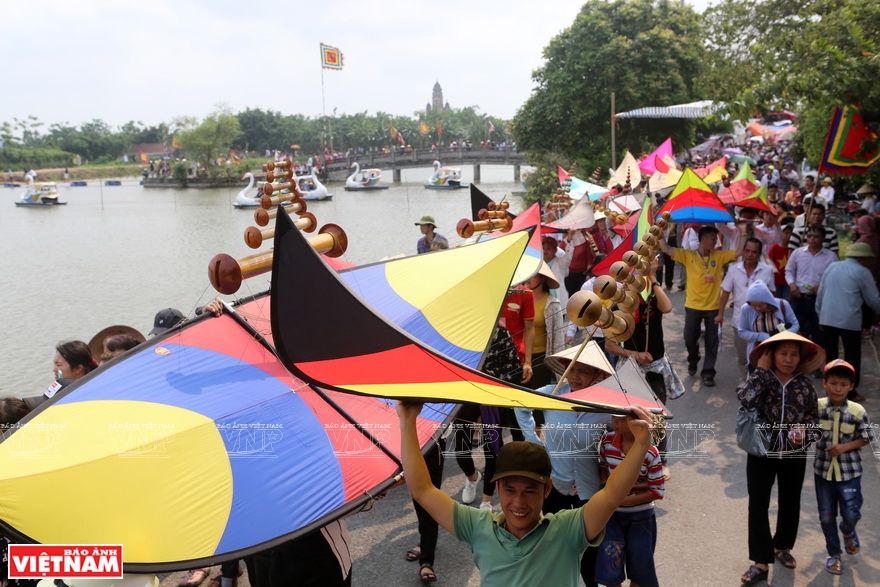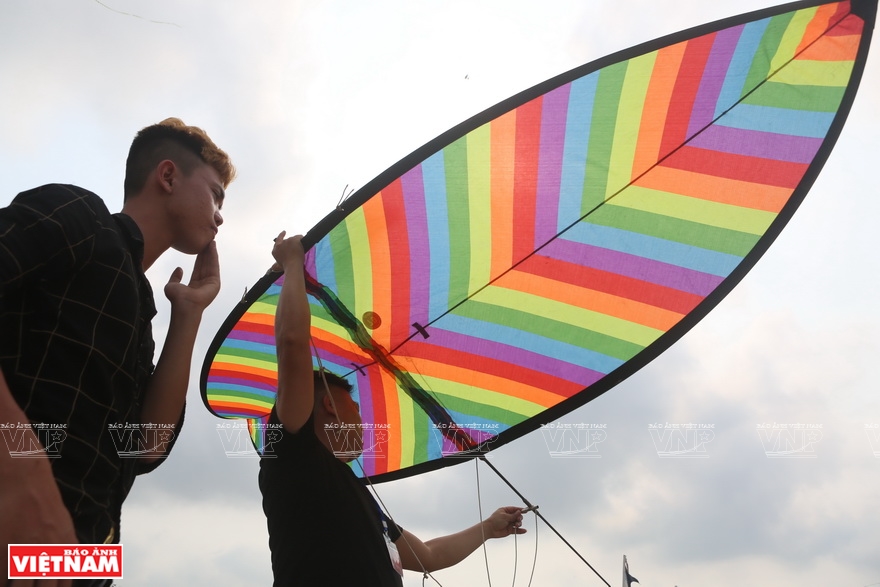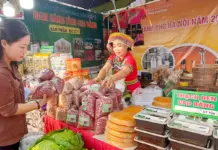| The kite flying festival is to commemorate Dinh Le, an important general of the Lam Son uprising. While stationed on Tung Linh mountain in Ha Tinh province, Dinh Le showed his soldiers how to make flutes and crescent moon-shaped kites and fly them as a way of relaxation after hard battles. |
The 10-day festival is held from the 18th to the 28th of the third lunar month at Sao Den (Flute Temple), a national historical and cultural site. The temple honors the Queen Mother Ngo Thi Ngoc Giao (1460-1496) of King Le Thanh Tong (1442-1497) and three meritorious brothers, Dinh Le, Dinh Bo and Dinh Liet, who made great contributions to the establishment of the earlier Le Dynasty.
Every year, on the anniversary of the death of Dinh Le, his descendants commemorated his merit by flying kites because Dinh Le used to encourage his soldiers to fly kites to combat the fatigue and tiredness of battles. On those festive days, people saw and heard hundreds of giant flute kites flying high in the region.
During the feudal period, the Sao Den kite flying festival was a national ceremony which had to be attended by all royal and local mandarins.
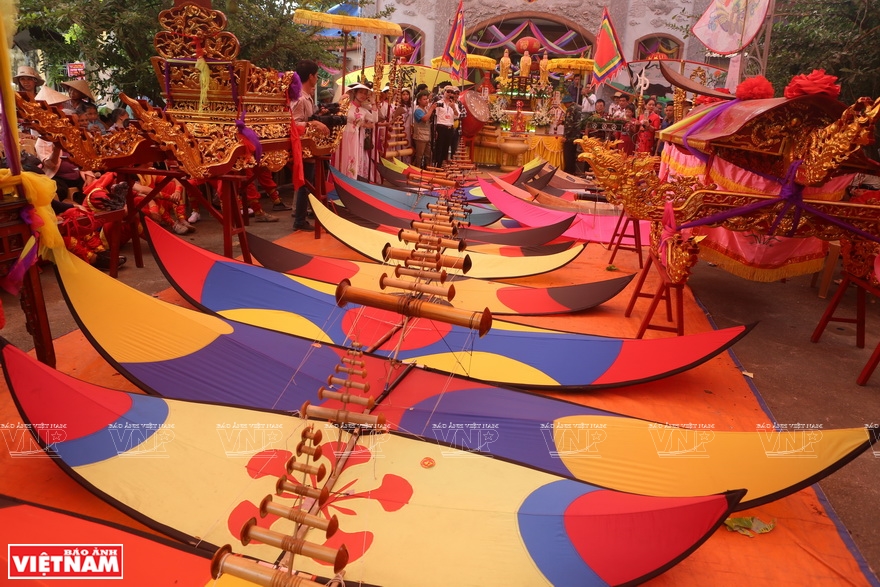 Contestants gather flute kites at the Goddess Temple for a pray-for-wind formality before the competition. Photo: Hai Yen
Before flying a kite. Photo: Hai Yen
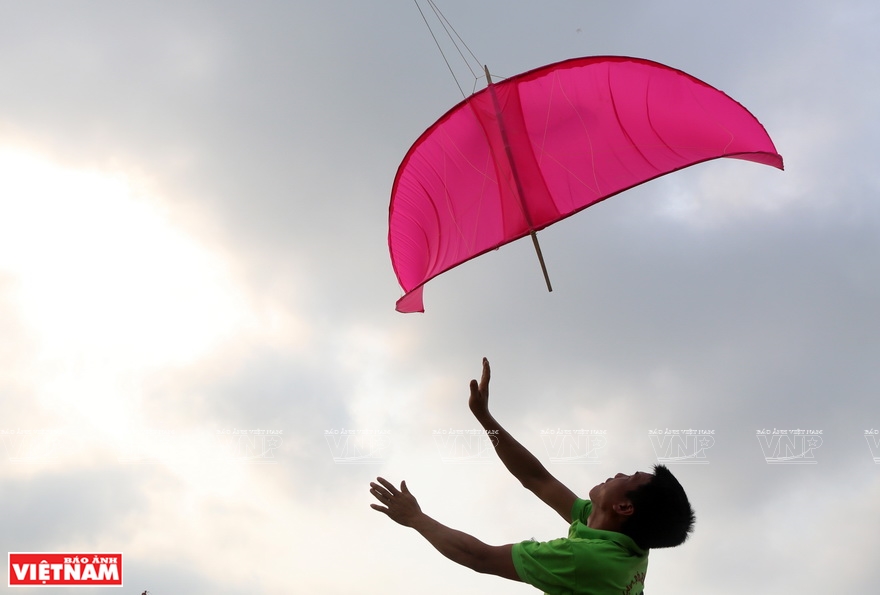 The festival is an essential part of the local life. Photo: Hai Yen |
The festival includes two parts: the officiation ritual to pray for peace, prosperity, fortune and happiness for all the people, and contests which include kite flying, cockfight, swimming to catch ducks, and walking on a slender bamboo pole supported by ropes over a pond.
The most exciting and challenging event is certainly the kite flying competition. In this competition, all contestants are supposed to fly their kites through a narrow space of 50cm between two 10m pillars topped with two sharp hooks. If the competitors cannot get the kite strings through the pillars without touching the obstacles, they fail. Those kites which can fly till the last day of the festival win the competition.
The competition draws flute kite clubs from around the country, including Hanoi, Can Tho, and Thai Binh, Nam Dinh, Hung Yen, Thai Nguyen and Quang Ninh provinces.
The festival not only honors a tradition of the region, but also helps preserve centuries-old games. It has become an essential part of the local life.
| Many provinces and cities, including Hanoi, Hai Phong, Nam Dinh, Thai Binh and Hung Yen, have set up flute kite clubs where tens of thousands of lovers of the traditional folk game gather. Hanoi flute kite club alone has nearly 4,000 members aged from 16 to 82. |

